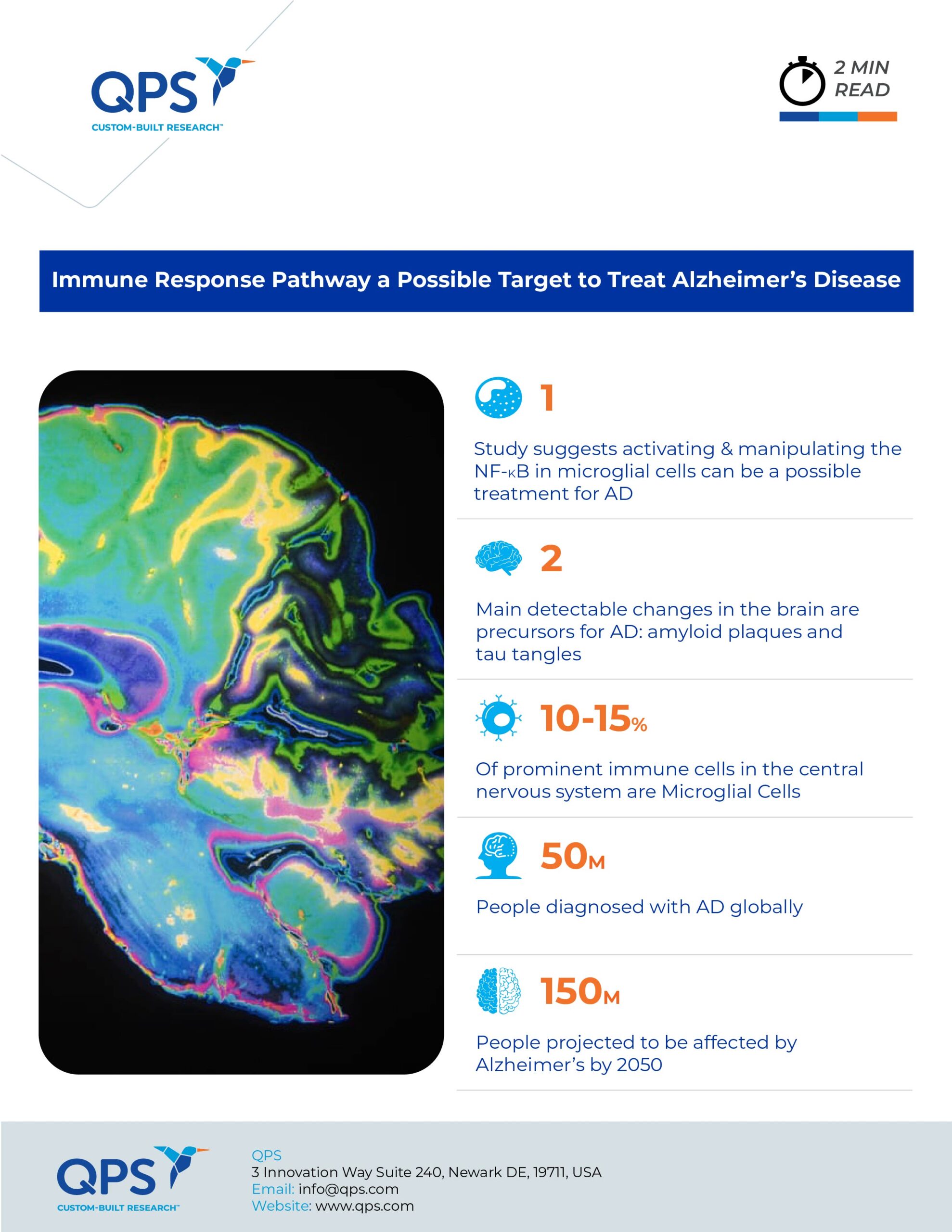Alzheimer’s disease (AD) is the most common form of dementia, affecting more than 50 million people globally. Projections show that, without a medical intervention, rates could more than triple by 2050. AD is marked by two main detectable changes in the brain: amyloid plaques resulting from the accumulation of the protein fragment beta-amyloid that form outside neurons (which are the target of currently available AD therapies such as Biogen’s aducanumab and Eli Lilly’s donanemab) and tau tangles, accumulations of an abnormal form of the protein tau that collect inside neurons.
Under normal circumstances, tau proteins help convey neurotransmitters from one end of the neuron to the other. The tau tangles associated with AD interfere with that process. Now, researchers from Weill Cornell Medicine, the biomedical research unit and medical school of Cornell University in New York City, New York, have uncovered a potential target for new therapies — the transcription factor involved in microglial inflammatory and immune responses: nuclear factor-kappa B (NF-κB).
Microglial Cells – the Neural “Clean-up Crew”
Microglial cells are the most prominent immune cells of the central nervous system – making up 10-15% of the cell population in the brain. Sometimes referred to as the clean-up crew for the brain, microglial cells help grow and maintain healthy neurons by pruning off weak or unnecessary connections. Microglial cells also phagocytize (eat) axons as well as living, dying or dead cells that are unnecessary or detrimental to neural function.
Interrupting a Cycle of Activation
Previous studies have suggested that there is a relationship between microglial cells and tau proteins in AD, and that tau pathology correlates more closely with synaptic loss, neurodegeneration, and cognitive decline than does amyloid pathology. Amyloid plaques also activate NF-κB and downstream signaling, but connection between this pathway and the formation of tau tangles was unclear until now.
While healthy microglial cells will consume extra tau proteins, they become inflamed in patients with AD and no longer function properly. This inflammation turns the normally helpful cells into tau-tangle-accelerators.
In the study published in Nature Communication, Li Gan, Director of the Appel Alzheimer’s Disease Research Institute at Weill Cornell Medicine, and colleagues showed that activating the NF-κB in the microglial cells of mice seeded with tau not only led to an increased number of tau tangles, but this increase further activated the NF-κB pathway. The researchers then showed that inhibiting NF-κB rescued learning and memory deficits in another mouse, leading to the conclusion that NF-κB hyperactivation drives tau toxicity in neurons.
“Taken together, our work shows that microglial NF-κB acts downstream of tau pathology, and directly mediates toxic effects on cognition, highlighting the potential of blocking maladaptive microglial responses instead of removing tau aggregates as a therapeutic strategy to treat tauopathy,” the researchers said.
Is This the Intervention We’ve Been Waiting For?
With a projection of as many as 150 million people affected by AD by 2050 without a significant change in treatment options, there is a significant interest in finding the medical intervention to slow or halt the impact. While there aren’t many programs specifically targeting NF-κB at this stage, Atlas-backed Vigil Neuroscience and GSK-partnered Alector are among the few biotechs exploring the manipulation of microglial cells as an alternative approach to treat Alzheimer’s.
Did you enjoy this blog post? Check out our other blog posts as well as related topics on our Webinar page.
QPS is a GLP- and GCP-compliant contract research organization (CRO) delivering the highest grade of discovery, preclinical and clinical drug research development services. Since 1995, it has grown from a tiny bioanalysis shop to a full-service CRO with 1,100+ employees in the U.S., Europe and Asia. Today, QPS offers expanded pharmaceutical contract R&D services with special expertise in neuropharmacology, DMPK, toxicology, bioanalysis, translational medicine and clinical development. An award-winning leader focused on bioanalytics and clinical trials, QPS is known for proven quality standards, technical expertise, a flexible approach to research, client satisfaction and turnkey laboratories and facilities. Through continual enhancements in capacities and resources, QPS stands tall in its commitment to delivering superior quality, skilled performance and trusted service to its valued customers. For more information, visit www.qps.com or email info@qps.com.








